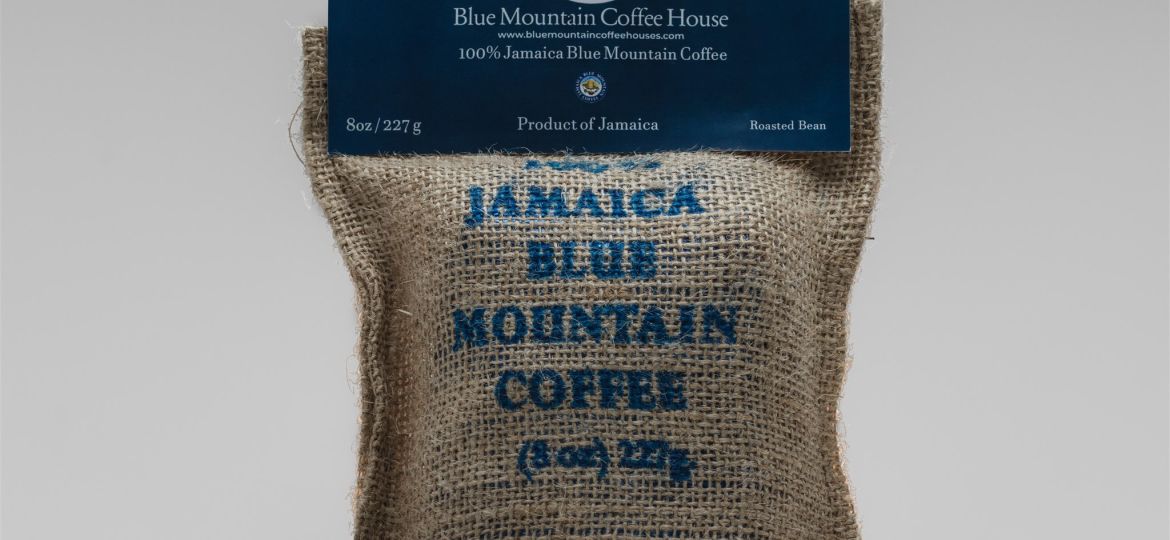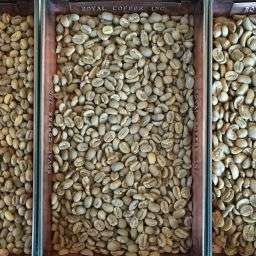
Blue Mountain Coffee, renowned for its exceptional quality and rich flavor, stands as one of the world’s most sought-after and prestigious coffees. Grown in the Blue Mountains of Jamaica, this coffee is celebrated for its mild flavor and lack of bitterness, setting it apart from other varieties.
The combination of a unique microclimate and volcanic soil in the Blue Mountains contributes to the coffee’s distinctive taste, making it a favorite among coffee aficionados globally.
History and Origin
The journey of Blue Mountain Coffee begins in southwestern Ethiopia, the birthplace of the Arabica coffee tree. In the 18th century, the British transported these Arabica beans to Jamaica, planting them in the fertile soil of the Blue Mountains. This region’s cool, misty climate and high elevation provided ideal conditions for cultivating coffee, marking the start of Jamaica’s storied coffee production.
Over the centuries, Blue Mountain Coffee has developed a reputation for excellence. Its cultivation is now a significant part of Jamaica’s economy and cultural identity, with the coffee gaining international acclaim for its quality and flavor. This prestige is maintained through strict regulation by the Jamaica Coffee Board, ensuring that only coffee grown in specified areas can be labeled as Blue Mountain Coffee.
Geographical Indication and Growth Conditions
Blue Mountain Coffee is exclusively grown in the Blue Mountains of Jamaica, a region that boasts some of the highest elevations in the Caribbean. The coffee thrives at altitudes ranging from 3,000 to 5,500 feet, where the cool, misty conditions and rich, volcanic soil are perfect for coffee cultivation. These geographical and climatic factors play a crucial role in the coffee’s unique flavor profile, characterized by a smooth and mild taste with hints of chocolate and fruit.
The specific regions within Jamaica where Blue Mountain Coffee is grown include Saint Thomas, Saint Andrew, Saint Mary, and Portland. These areas are strictly regulated to ensure the coffee’s quality and authenticity. The challenging terrain and labor-intensive harvesting methods further contribute to the coffee’s exclusivity and high price.
The unique conditions of the Blue Mountains, including its rich soil, ample rainfall, and cool temperatures, create an unparalleled environment for coffee production. These factors, combined with careful cultivation and processing techniques, result in a coffee that is not only a source of national pride for Jamaica but also a cherished commodity for coffee lovers worldwide.
Cultivation Practices
Blue Mountain Coffee’s cultivation is significantly influenced by the altitude and environmental conditions of the Blue Mountains. The coffee is grown at elevations between 3,000 to 5,500 feet, where the cooler temperatures and frequent mist provide a slower growth cycle for the coffee cherries, resulting in denser beans with a richer flavor profile.
The traditional farming methods employed, often on small family-owned farms, emphasize sustainable practices and meticulous care of the coffee plants. These small farms play a crucial role in the overall production of Blue Mountain Coffee, contributing to the maintenance of its high quality through generations of knowledge and expertise.
Harvesting and Processing
The harvesting of Blue Mountain Coffee is a labor-intensive process, requiring careful handpicking of the ripe coffee cherries. This meticulous selection ensures only the highest quality beans are processed. After picking, the beans undergo a rigorous quality sorting process, where they are hand-sorted to remove any defective beans.
The steps from picking to processing are closely monitored to maintain the integrity and flavor of the coffee. This includes wet processing, where the beans are washed and fermented to remove the mucilage, and then dried slowly, preserving their unique taste.
Quality and Certification
The Jamaica Coffee Board plays a pivotal role in certifying Blue Mountain Coffee, overseeing a stringent certification process that ensures authenticity and quality. Only coffee grown within designated regions of the Blue Mountains can be certified as genuine Blue Mountain Coffee.
This certification process includes rigorous inspection and taste testing of the beans. Consumers can identify genuine Blue Mountain Coffee by looking for the certification seal from the Jamaica Agricultural Commodities Regulatory Authority (JACRA), which replaced the Coffee Industry Board. This seal is a guarantee of authenticity and indicates that the coffee meets the strict standards set for Blue Mountain Coffee.
Flavor Profile and Roasting
Blue Mountain Coffee is celebrated for its smooth, mild flavor with bright acidity, and notes of chocolate and fruit, setting it apart from other coffee varieties. Its unique flavor profile is attributed to the specific growing conditions in the Blue Mountains, including the soil composition and climate.
The recommended roasting levels for Blue Mountain Coffee are medium to medium-dark, which enhances its natural flavors without overshadowing its distinct characteristics. When compared to other coffee varieties, Blue Mountain Coffee stands out for its lack of bitterness and balanced flavor, making it a prized choice among coffee enthusiasts worldwide.
Brewing Techniques
To extract the best flavor from Blue Mountain Coffee, the recommended brewing methods include using a French press or pour-over technique. These methods allow for optimal water contact with the coffee grounds, enhancing the extraction of the coffee’s rich flavors.
The ideal water temperature for brewing should be between 195°F to 205°F, ensuring that the coffee is not over-extracted or burnt, which can affect its natural taste. Brewing time is also crucial; for a French press, a brewing time of 4 minutes is recommended, while pour-over methods may vary slightly. Following these guidelines will ensure a cup of coffee that is true to the distinctive and celebrated taste of Blue Mountain Coffee.
Storage and Preservation
To maintain the freshness and flavor of Blue Mountain Coffee, it is essential to store the beans or ground coffee properly. Coffee should be kept in an airtight, opaque container and stored in a cool, dark place to prevent exposure to air, light, and moisture, which can degrade its quality.
Avoiding the refrigerator or freezer for storage is recommended, as the fluctuating temperatures can cause condensation, affecting the coffee’s taste. For optimal freshness, it is best to buy beans in small quantities and grind them just before brewing.
Economic and Cultural Impact
Market Demand and Export
Blue Mountain Coffee is in high demand globally, with Japan importing a significant portion of Jamaica’s coffee exports. Jamaica produces only a fraction of the world’s coffee, yet Blue Mountain Coffee commands premium prices on the international market due to its renowned quality. This high demand significantly impacts the Jamaican economy, providing a valuable export product and supporting the livelihoods of many farmers and workers in the coffee industry.
Cultural Significance
Blue Mountain Coffee is deeply woven into Jamaica’s cultural fabric, symbolizing the country’s rich agricultural heritage and expertise in coffee cultivation. It represents not only a source of pride for Jamaicans but also a testament to the country’s commitment to quality and excellence in the coffee market.
The traditions and practices surrounding its cultivation, processing, and enjoyment highlight the cultural importance of coffee in Jamaica, making Blue Mountain Coffee a key part of the nation’s identity and culinary legacy.
FAQs
What makes Blue Mountain Coffee unique?
Blue Mountain Coffee’s uniqueness lies in its cultivation in the specific microclimate of Jamaica’s Blue Mountains. This environment, characterized by cool temperatures, misty conditions, and rich, volcanic soil, contributes to the coffee’s distinct smooth, mild flavor with a lack of bitterness. Its rarity, strict quality control, and the meticulous cultivation and processing methods further set it apart from other coffee varieties.
How can I ensure I’m buying genuine Blue Mountain Coffee?
To ensure you’re buying genuine Blue Mountain Coffee, look for the certification seal from the Jamaica Agricultural Commodities Regulatory Authority (JACRA). This seal indicates authenticity and compliance with strict quality standards. Purchase from reputable dealers known for their direct connections to Jamaican coffee producers. Additionally, be wary of prices that seem too low to be true, as genuine Blue Mountain Coffee commands a premium.
What is the best way to brew Blue Mountain Coffee?
The best way to brew Blue Mountain Coffee is using methods that allow for full extraction without bitterness. French press and pour-over techniques are highly recommended. Use water just off the boil (around 195°F to 205°F) and grind the coffee beans freshly before brewing to ensure the best flavor profile. Brewing times should be adjusted to taste, but generally, 4 minutes for French press and 2-3 minutes for pour-over methods are ideal.
Can Blue Mountain Coffee be used for espresso?
Yes, Blue Mountain Coffee can be used for espresso, offering a unique and exquisite espresso experience. Its smooth flavor profile translates well into the concentrated form of espresso, delivering a cup with bright acidity and complex flavors. For best results, use a fine grind and ensure your espresso machine is properly calibrated to handle the nuances of this premium coffee.
Final Thoughts
Blue Mountain Coffee is celebrated globally for its unique taste, rarity, and the meticulous attention to detail in its cultivation and processing. Its smooth, mild flavor, combined with the rich cultural heritage and strict quality standards of Jamaica, sets it apart as a premium coffee variety.
Whether enjoyed as a traditional brew or as a refined espresso, Blue Mountain Coffee offers a distinctive coffee experience cherished by connoisseurs and casual drinkers alike. Its global appreciation underscores the coffee’s standing as a symbol of quality and excellence in the coffee world.









